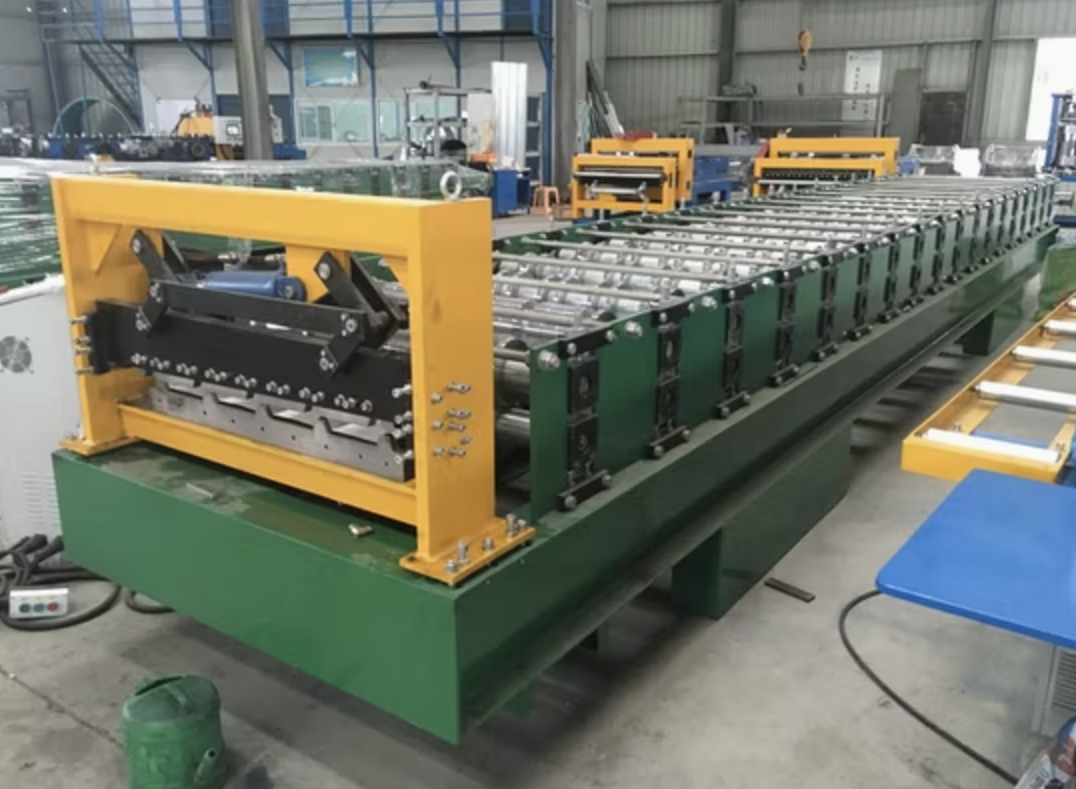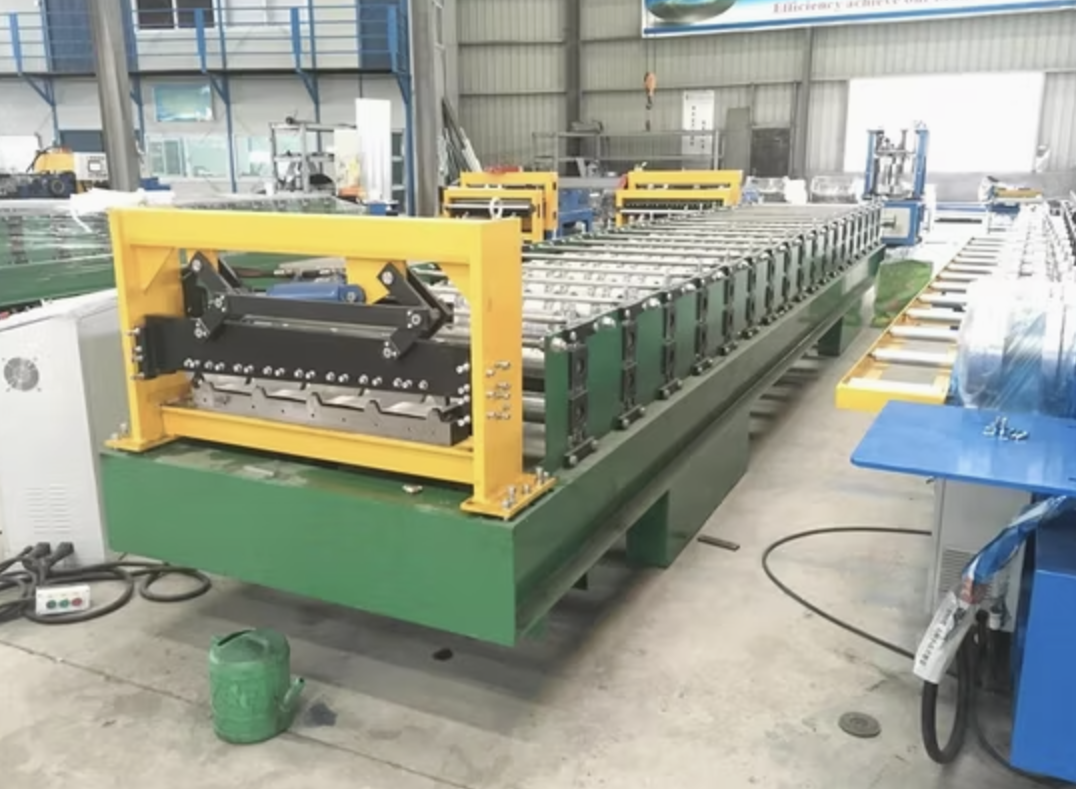To express an interest in this machine please submit the form below.

Not Sure What Machine You Need?
Select Your Profile, We'll Match It
Choose your desired profile drawing, and let Machine Matcher connect you with the best roll forming machine tailored to your needs.
Browse Profiles


A roofing sheet roll forming machine is a specialized piece of equipment used in the metal fabrication industry to manufacture roofing sheets from metal coils. These machines are designed to produce sheets with consistent quality, precision, and high efficiency, catering to the growing demand for roofing materials in construction. Roofing sheets produced by these machines are commonly used for residential, commercial, and industrial buildings.
Algeria’s expanding construction sector makes roofing sheet roll forming machines essential for local manufacturers and builders. The machines help produce roofing profiles that withstand the country’s varied weather conditions, offering durability and cost-effectiveness.
1. Frame and Construction:
2. Rollers:
3. Profile:
4. Cutting System:
5. Motor and Drive System:
6. PLC Control System:
7. Machine Speed:
8. Optional Features:
9. Dimensions:
10. Power Requirements:
1. What types of roofing profiles can this machine produce? The machine can produce a wide range of profiles, including corrugated, trapezoidal, and standing seam roofing sheets. Custom molds can be designed to cater to specific Algerian market demands.
2. Can this machine handle different materials? Yes, the machine supports materials such as galvanized steel, aluminum, pre-painted steel, and zinc sheets.
3. How does the machine ensure precise cutting? The hydraulic cutting system, equipped with Cr12 mold steel blades, provides high-precision cutting with an accuracy of ±1 mm.
4. What is the average production capacity? Depending on the model and configuration, the machine can produce 10–15 meters of roofing sheets per minute.
5. Is training provided for operators? Yes, manufacturers typically provide training for machine operation, setup, and maintenance.
6. Can the machine be customized to local requirements? Absolutely! The machine can be tailored for profile designs, power requirements, and other specific needs of Algerian manufacturers.
7. What are the maintenance requirements? Regular maintenance involves lubricating moving parts, inspecting rollers and blades, and ensuring the PLC system is updated.
8. How long does installation take? Installation typically takes 1–2 weeks, depending on the machine's complexity and site conditions.
9. Is the machine suitable for small-scale manufacturers? Yes, compact models are available for small-scale operations, while larger models cater to high-volume production.
10. What is the delivery time for Algeria? Delivery times range from 30 to 60 days, including shipping and customs clearance.
Copyright 2026 © Machine Matcher.